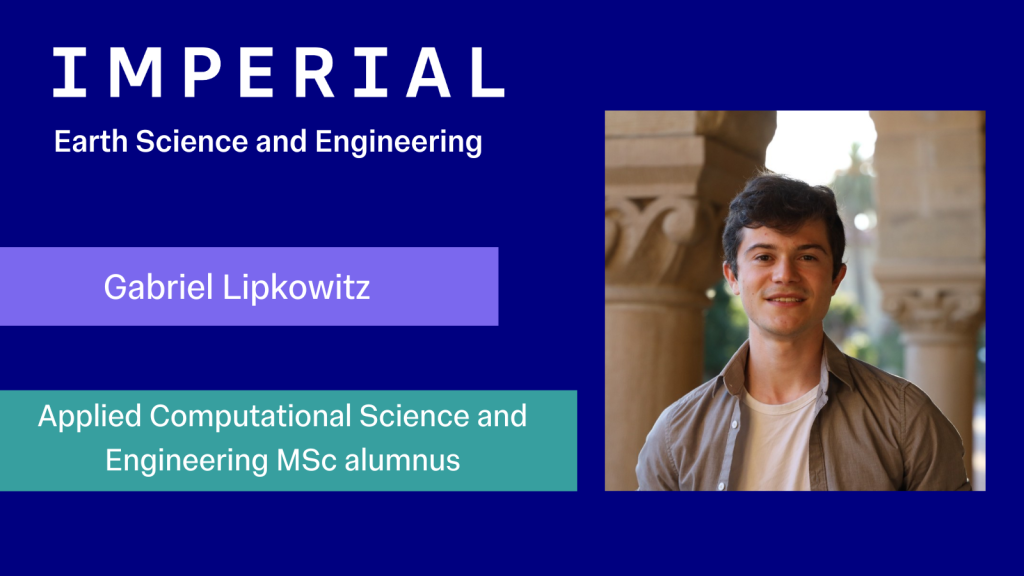Gabriel Lipkowitz graduated from the Department of Earth Science and Engineering‘s Applied Computational Science and Engineering MSc programme in 2020. He is now completing a PhD in Mechanical Engineering at Stanford University. Gabriel is now an incoming assistant professor at the National University of Singapore in the Division of Industrial Design.
In this blog, Gabriel looks back at his time at Imperial and explains how the ACSE MSc programme helped shape his academic career.
What was your favourite part of ESE‘s Applied Computational Science and Engineering MSc programme?
Definitely meeting such a diverse group of students who I could learn with. It made it a really enjoyable experience, and it helped me stay motivated and excited about the material in the course. I enjoyed that many of the modules in the course were project-based. This meant that most of the assignments in these modules were very collaborative in nature, which helped form and strengthen ties between us students.
I also liked the balance between theoretical understanding and practical application. The practical assignments helped me develop essential programming skills, they taught me how to learn to program, which was a key takeaway from the course for me. I am now able to teach myself new programming languages, something that has been invaluable in my current research.
How did the MSc help you get to where you are today? Would you say the course influenced your career path?
I am now completing a PhD at Stanford University, focusing on spatial computing – an area of human-computer interaction that explores the development of 3D user interfaces using augmented, mixed, and virtual reality.
The skills and experience I gained at Imperial definitely helped me get into this PhD programme. I was able to develop a new skill set that empowered me to go into an area that I would otherwise have no ability to even explore. My ability to debug, understand code, and run tests really improved thanks to the practical modules of the course. And the experience also improved my teaching abilities as a PhD student.
You mentioned you enjoyed learning alongside others in the MSc programme. How did they help you in your MSc journey?
I formed lasting relationships with many of my classmates, some of whom had prior industry experience and had been in full-time jobs before starting the MSc – as opposed to what I did, which was coming straight from my undergraduate degree.
This exposed me to new perspectives and methodologies for problem-solving, especially when working in groups. I remember being very impressed by the methodical nature of how some of my peers went about debugging and programming in general. I think, particularly, I learned not so much specific technical skills, but a way of going about problem solving that has really helped me.
What did you enjoy about being a student at Imperial and in London more generally?
Being back this month for the first time since 2020 has reminded me how much I enjoy being in London. It is such a vibrant, unique place, and you get to meet so many people from all over the world.
And Imperial has such a lively student community too. There are many societies – I was involved with the table tennis club and frequented the student union and the farmer’s market often. The Department of Earth Science and Engineering also has great facilities in the Royal School of Mines. I really liked the communal spaces available for group work, which we used all the time.
What advice would you give to prospective students thinking about applying to this MSc?
I would say embrace collaboration from the very beginning of the course.
Working with my classmates and learning from each other was one of the most valuable aspects of the programme. I would say that there’s always a temptation with an assignment to work very hard independently on it – to try and figure something out on your own… but the most valuable part of the course was working with other students, collaborating, and learning from them.
